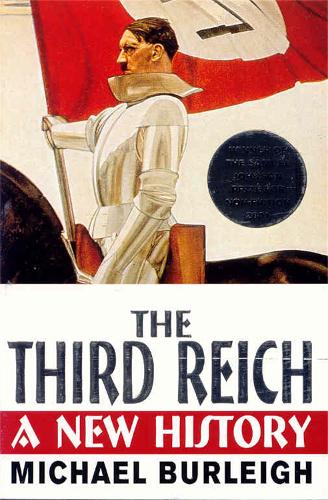Michael Burleigh's 'The Third Reich: A New History' offers a nuanced and comprehensive analysis of Nazi Germany, focusing on police terror, racism, and mass murder. The book challenges traditional views by emphasizing the totalitarian and political religious aspects of Nazism, while also highlighting the individual actions and responsibilities of those involved.
Michael Burleigh's 'The Third Reich: A New History' provides a fresh perspective on the Nazi regime, shifting the focus from Hitler's biography to the broader context of totalitarianism and political religion. The book delves into the moral collapse of German society, examining the role of police terror, racism, and mass murder. Burleigh argues that Nazism was a political religion that promised greatness and salvation, driving its followers to extreme actions. The narrative is both comprehensive and nuanced, offering a detailed account of the regime's atrocities, including forced sterilization, euthanasia, and the Holocaust. The book challenges the notion that all Germans were enthusiastic Nazis, highlighting the complexities and individual responsibilities within the regime. While the book's emphasis on totalitarianism and religious cult theories is somewhat undermined by evidence of cynicism and opportunism, the cumulative effect of the stories told is overwhelming and thought-provoking.
Quick quotes
The book became an instant best seller -- notwithstanding its emphasis on foreign policy and military conquest
Burleigh, who is currently the William R. Kenan visiting professor at Washington and Lee University in Virginia, is well regarded as a scholar, the author of several studies on Nazi racism and mass murder.
The book challenges Daniel Jonah Goldhagen, who explained the 'final solution' in terms of what he called an 'eliminationist anti-Semitism' of ordinary Germans.
